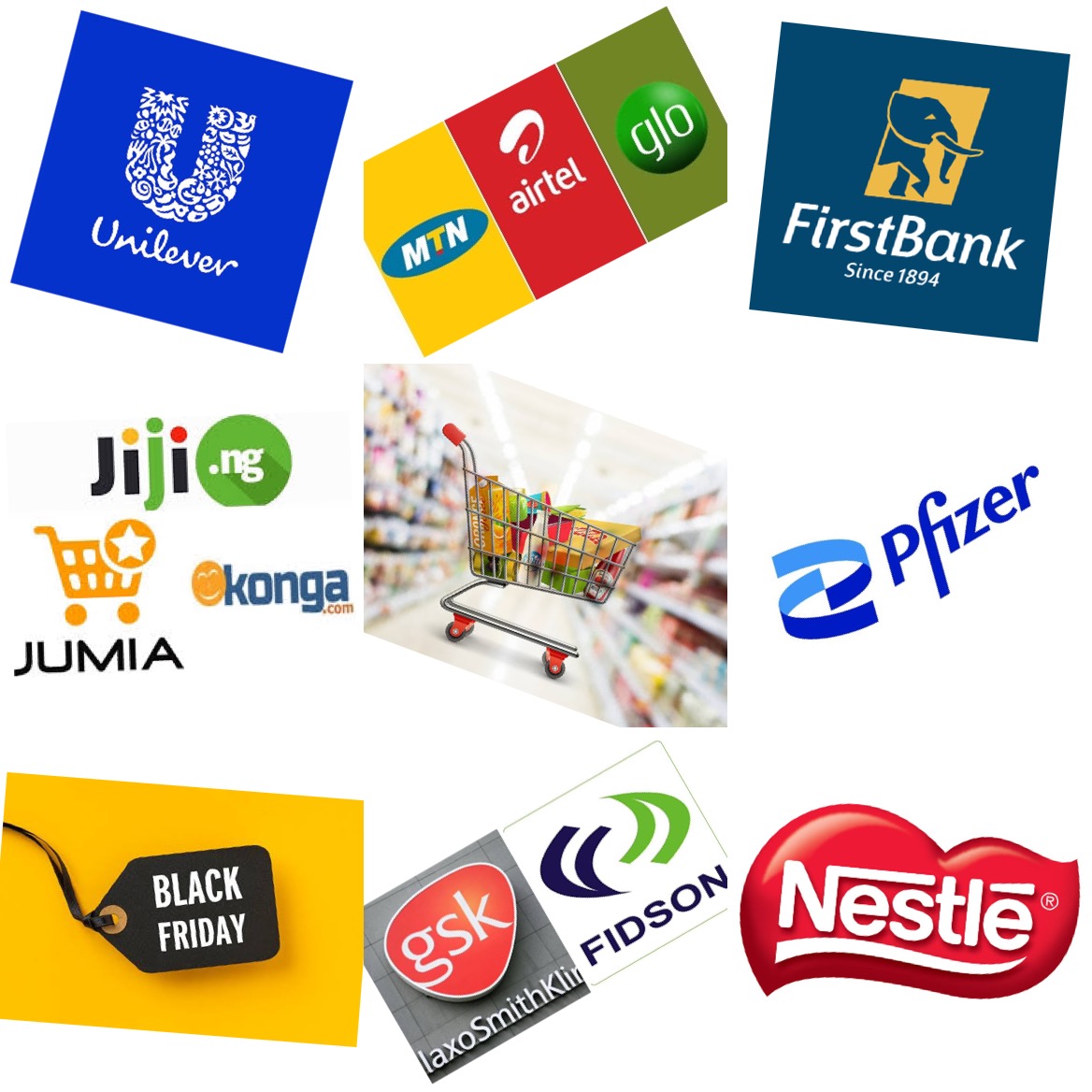Funke Cole in this report captures the highs and lows of the yuletide vis-à-vis consumer buying behaviour in a world of competing brands
Year 2021 in review
Taking a retrospective look into the outgoing year, the economy literally fumbled on the back of the ravaging COVID-19 pandemic which went on a killing spree across the globe, leaving most governments around the world askance as they longed desperately for lasting vaccines to contain the virus just as most countries got little or no fresh stream of investment especially in less developed economies who shockingly dig deep into their reserves while a few like Nigeria, Tanzania, Zimbabwe, took more debts just to survive this period.
The world of business and commerce also had its fair share of headaches as the feeling of inertial enveloped most companies who cut down major production lines, jobs, filed for bankruptcy, warts and all, save for a few who had to literally scrape by and only just concerned about preventing untoward losses as against breaking even.
As a corollary, most brands, of course, were directly affected as people have had to cope with the dwindling economy to be able to survive with their lean resources. Little wonder that the World Bank, the International Monetary Fund, and World Economic Forum had forecasted that most businesses would crash as a result of COVID-19 which posed more grave consequences to businesses than previous times. The same could be said of Nigeria’s economy, with brands falling at low peak ends, struggling to gain the attention of prospective and current consumers.
But in a manner of speaking, luck did smile on some sectors as the year panned out, even in Nigeria, where some brands inked some million dollar deals, broke new grounds and got their lives back on an even keel!
Yuletide blues
The last quarter of 2021 was very eventful per se. From October till December, a lot happened. For instance, typically, Christmas season is one time of the year when people make merry, take a holiday and generally unwind. So it was at the corporate level too, where this feeling of conviviality was apparent. As the year panned out, many companies operating within the fast moving consumer goods and services sector as a matter of course carried out certain activities in tune with the times- Christmas.
However, signs that this year’s festivities were going to be a bit awkward like the previous year were all glaring because it came on the back of a ravaging COVID-19 variant, Omicron, which literally set everyone on edge.
At the global level, especially in more advanced economies like the UK, USA, Canada, to mention just a few, where the pandemic had continued to take its toll, the fear of Omicron was the beginning of wisdom so much that they had placed most countries like Nigeria on the blacklist. But for a quick witted and retaliatory measure by the Federal Government the country would have remained a pariah nation among the comity of nations with most of her citizens denied the joy of celebrating the yuletide as is typical of Nigerians in the diaspora who make pilgrimage to the country during the festivities to spend time with their loved ones, spending hard currencies and generally shoring up the economy during this period.
On the home front, people were contending with the parlous state of the economy on the one hand side-by-side crisis of internal insurrections, banditry, kidnap-for-ransom, ritual killings, clashes by ethnic militias, and other nefarious activities that made life nasty, short and brutish.
Q4 outlook from the street
With the benefit of hindsight, in the Information and Communication Technology (ICT) space, the pandemic was rather a blessing in disguise as it paved way for increment in sales for product and services like voice and messages, data with major telcos like MTN, Globacom, Airtel, etc., cashing out as most people relied heavily on online communication to boost friendship and promote businesses. So, invariably, network providers utilised this period to augment the lapses between virtual and physical interaction.
Ditto for Fast Moving Consumer Goods (FMCG)
Companies like Nestle Plc, Unilever, Pfizer, etc, all fared well as their brands were largely patronised and were in demand for the whole of the quarter.
Hajia Halima Danesi-Yusuf, who sells groceries in uptown district of Lagos, at Iyana-Ipaja to be precise, informed that most of these FMCG companies made a lot of sales during this period of the year as they practically emptied their old stocks ahead of fresh production in the new year, hence they did freebies, giveaways and offered their wares in discounted rates.
According to her, during the fourth quarter, freebies are considered to attract massive sales by most companies dealing in consumer goods. Specifically, she said the Black Friday, an internationally recognised day where top brands partner chain stores and supermarkets to sell their products at rock bottom prices, has been known to boost sales and Nigerian FMCG companies are not left out.
Chain stores like Shoprite, Justrite, Grocery Bazaar, Addide, Twins Fajja, all in Lagos and environs, visited by our correspondent saw a beehive of activities as shoppers went on a shopping spree because of the rebate and discounted rates offered by most of the stores.
“The Black Friday sales made shopping easy for most ‘overwhelmed’ customers who could not afford most of the cost prices of these brands. Not forgetting that this period signals the end of the year where promos, freebies are considered as an appreciative way of encouraging enduring customers who have stood with the brands upon inception. I was at a supermarket three days before, and also partook in the ongoing promo and discounted prices to promote massive sales of products that weren’t hugely patronised. Since the companies know that most of these brands have short shelf lives that could reduce the lifespan, one better way of recouping their capital is by selling such off at half the price,” Hajia Yusuf stressed.
Echoing similar sentiments, Adio Baruwa, who deals on hampers and other seasonal ware said he experiences a peak period in terms of patronage during the yuletide. “I can tell that most consumers save up for Christmas more than any other season of the year. And many FMGC companies know this for a fact and work on the psyche of the consumers by offering a lot of promo sales just to encourage patronage. So you can call December time a day for the consumer because things fall in his or her favour.”
E-commerce brands like Jumia, Konga, Jiji, etc also boast of better sales turnover as delivery made available by them eased the tension and fear of being in a crowded place to avoid the issue of contagious experiments.
Deals of the year
One newsmaker that took a lot of industry watchers by surprise was billionaire businessman, Mr Femi Otedola, following his triumphant return to the capital market on a big scale a few years after he offloaded his stake in Forte Oil (75 per cent).
The business mogul reportedly pounced on the crisis at FBN Holdings Plc, the parent company of First Bank of Nigeria Limited, which also recently had a board crisis, to take over the company.
Otedola, son of a late Governor of Lagos State, Sir Michael Otedola, is now the single majority shareholder of the first generation lender in Nigeria.
He is said to have acquired N30 billion worth of the company’s equities at the Nigerian Exchange (NGX) Limited, where the firm is listed.
Otedola is not new to the boardroom and it is believed that his entry into the banking space would cause a disruption and make him rub shoulders with renowned bankers like Mr Jim Ovia of Zenith Bank Plc, Tony Elumelu of United Bank for Africa (UBA), amongst others.
According to Olusola Teniola, National Coordinator, Alliance for Affordable Internet and former President of the Association of Telecommunications Companies of Nigeria, the telecommunications sub-sector recorded the most impact in terms of new investments and all.
Also worthy of note, Teniola said, is the rise and rise of MTN Nigeria, which in the course of the year became a wholly indigenous company following the divestment of over 65% stakes by the MTN Group.
In November, the telco giant offered for sale 575million shares to institutional and retail investors.
Speaking on this development, the National Coordinator of Progressive Shareholders Association, Okezie Boniface, said such a move was commendable.
Speaking at an investors’ forum in Lagos, Boniface described the move as a testament to the ‘Nigerianness’ of the company and said it would allow more Nigerians to be part of the success story.
He said, “I would like to commend the MTN Group for reducing their shareholding to enable more Nigerians the opportunity to own shares in MTN Nigeria. Their decision clearly shows that today, MTN is no longer a foreign company, it is now Nigerian. This is commendable. To me, MTN is the best company to invest in for Nigerians so I‘m urging every retail investor and other Nigerians to take advantage of this public offer.”
MTN Nigeria’s public offer, the first to be delivered digitally in Nigeria, is being sold to retail investors at N169 per share. The offer is the first from MTN since the 2019 listing on the Nigeria Exchange Limited (NGX) and the company seeks to take advantage of digital integration to ensure substantial participation from investors across Nigeria.
Following on the heels of MTN Nigeria is Funke Opeke, the CEO of MainOne, whose company pulled off a deal with Equinix, a U.S. multinational specialising in internet connection data centres.
MainOne cable, which services businesses in more than 10 African countries, is now an Equinix subsidiary and the acquisition, subject to regulatory approval, is pegged at $320 million. When completed, it will become the largest acquisition of a tech company in Nigeria and the first landmark deal made by an African woman tech CEO.
In the area of healthcare, companies like GlaxoSmithKline (GSK) Nigeria and Fidson made an enviable GSK Nigeria and Fidson Healthcare Plc inked a five year contract manufacturing agreement worth N10billion. By the agreement, Fidson would be producing drugs for GSK while GSK sells at its will.
Devil in the details
Data obtained from the National Bureau of Statistics showed that the consumer price index, (CPI) which measures inflation increased by 15.40 percent (year-on-year) in November 2021. This is 0.51 percent points higher than the rate recorded in November 2020 (14.89) percent.
Increases were recorded in all COICOP divisions that yielded the Headline index. On a month-on-month basis, the Headline index increased by 1.08 percent in November 2021, this is 0.10 percent higher than the rate recorded in October 2021 (0.98) percent.
The percentage change in the average composite CPI for the twelve months period ending November 2021 over the average of the CPI for the previous twelve months period was 16.98 percent, showing 0.02 percent point from 16.96 percent recorded in October 2021.
In Nigeria, the Consumer Price Index or CPI measures changes in the prices paid by consumers for a basket of goods and services.
According to the NBS, the Nigerian economy slowed further in Q4 ’21 as base effects faded away just as it stated that the economy received some support by increased aggregate demand ahead of Christmas. However, this was limited by weakened purchasing power. “So far in 2021, the average price of domestic commodities has risen by over 50%. Hence, we project a positive but slightly lower GDP growth rate of 3.5% in Q4. This could potentially bring the average GDP growth in 2021 to 3.26% – 5.64%.”
In spite of the positive numbers in Q3’21, and the upward revisions to Nigeria’s 2021 and 2022 GDP growth forecasts by both the IMF and the World Bank, policymakers will not be oblivious to Nigeria’s growth problem, the NBS stated.
All said, the last quarter, in the view of economic watchers, was a mixed grill of everything good, not-so-good and not-so-bad!







Comment
No comments found.